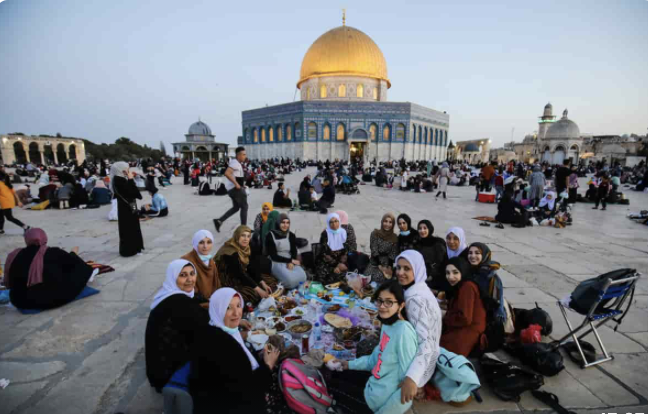The month of Ramadan in the Islamic calendar is observed by Muslims worldwide as a sacred month of reflection. Its history dates back more than 1,400 years to the time of Prophet Muhammad, who received the first verses of the Quran during this month. The word “Ramadan” itself comes from an Arabic root meaning “intense heat” or “scorching sun,” symbolising the spiritual heat and purification that Muslims undergo during this special time.
During the holy month, Muslims use Ramadan as a time of fasting, prayer, reflection, and community. The primary reason for fasting during Ramadan is to attain taqwa, or a heightened sense of God-consciousness and self-discipline. Fasting from dawn until sunset, Muslims refrain from food, drink, and other physical needs, focusing instead on spiritual growth and empathy for those who are less fortunate.
The significance of Ramadan extends beyond self-discipline; it commemorates the month in which the Quran was revealed, offering guidance and a code of conduct for Muslims. It is a time for increased devotion and deepening the connection with Allah (God). Beyond individual spiritual growth, Ramadan emphasises community and compassion. Muslims come together for iftar, the evening meal to break the fast, and engage in acts of charity and kindness.
Ramadan holds a special place in the hearts of Muslims, reminding them of their shared faith, the importance of gratitude, and the value of compassion for others.
During this sacred month, Muslims fast from morning to sunset. Fasting is more than just not eating or drinking; it is a spiritual discipline that includes self-reflection, greater worship, and acts of charity. Muslims rise before dawn to eat suhoor, a pre-dawn meal that prepares them physically and mentally for the day ahead. As the sun rises, the fast begins, and Muslims refrain from eating, drinking, smoking, and engaging in any intimate relations until sunset. Fasting encourages self-discipline, empathy, and thankfulness when people feel hunger and thirst, resulting in a greater appreciation for the blessings bestowed upon them.
Fasting during Ramadan has spiritual significance in addition to its physical benefits. It is a season of intense devotion in which Muslims intensify their recitation of the Quran, pray more frequently, and ask forgiveness for past mistakes. The emphasis is on strengthening one’s relationship with Allah and cleaning the soul. Ramadan is also a time for charitable deeds that benefit the community. Muslims are encouraged to be generous and help those in need by donating Zakat, a mandatory charity, and participating in voluntary acts of generosity. This involves distributing meals to the less fortunate, donating to charitable groups, and assisting people in need. The act of giving during Ramadan is thought to purify one’s wealth and reap spiritual benefits.
In summary, Ramadan is a month of spiritual reflection, self-discipline, and acts of charity for Muslims. Through fasting, Muslims not only experience physical deprivation but also cultivate a deeper sense of empathy and gratitude. It is a time of increased devotion, seeking closeness to Allah, and engaging in acts of kindness and generosity towards others.
Huray Demirci and Maliha Hussain

MeriNefertova
HI
Недавно я нашла твой пост и твоя тема схожа с моей, я про тему этот, ознакомься с моей писаниной),
я в том же направлении пишу,
Моя страничка на сайте знакомств, он еще называется знакомства рядом с домом или мне на почту скинь.
я надеюсь на общение, ты отличный человек, со своим мнением,
Напиши мне, почту или через личное сообщение, хорошо?ты ведь в курсе во сколько я там бываю
Всем здоровья и хорошего настроя